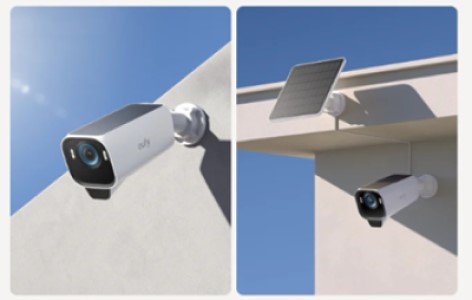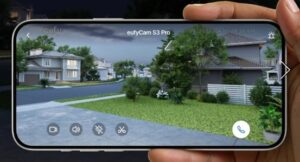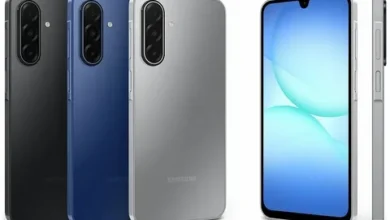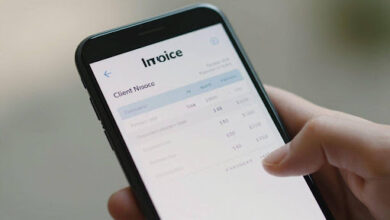Do Security Cameras Need Internet to Work?

Security cameras have become essential tools for protecting homes and businesses. But many people wonder whether these devices must always rely on an internet connection. The truth is, not all security cameras require WiFi or broadband access to function effectively. Some operate independently, storing footage locally or using alternative transmission methods.
Understanding these options helps you choose the right system based on your needs, whether you have unreliable internet or prefer offline recording. In this article, we’ll explore how different cameras work with and without the internet, their pros and cons, and how to access footage remotely even without WiFi.
Which Security Cameras Require Internet Connection?
Most modern security cameras, especially smart models, rely on WiFi to offer advanced features like live streaming, cloud storage, and instant alerts. These cameras upload footage to online servers, allowing users to monitor their property from anywhere via a smartphone app. Without internet, they lose remote access capabilities, though some may still record locally. Cameras with AI-based detection, two-way audio, and integration with smart home systems almost always need an active internet connection to function fully. However, if your primary concern is basic surveillance without remote viewing, internet-free options exist.
How Do Security Cameras Work Without Internet?
Local Recording to SD Cards & NVR Systems
Many security cameras store footage directly on microSD cards or Network Video Recorder (NVR) systems without needing the internet. These devices continuously record video and save it to internal storage, which you can review later by removing the SD card or accessing the NVR.
This method is ideal for users who prioritize privacy and don’t want their footage stored in the cloud. Local recording also avoids monthly subscription fees associated with cloud services. However, since these cameras don’t transmit data online, real-time alerts and remote access are unavailable unless paired with additional hardware.

Wired Analog CCTV Camera Systems
Traditional wired CCTV cameras operate entirely offline, transmitting video signals through coaxial cables to a Digital Video Recorder (DVR). These systems are highly reliable because they don’t depend on WiFi or internet stability.
They’re commonly used in businesses and large properties where uninterrupted recording is crucial. While they lack smart features like motion-triggered notifications, they provide high-quality footage without bandwidth limitations. For remote access, some DVRs can connect to a local network, but this requires additional setup without relying on cloud services.
Cellular Security Cameras as Alternative
For locations without WiFi, cellular security cameras offer a practical solution. These devices use 4G/5G networks to transmit footage, eliminating the need for a broadband connection. They’re perfect for construction sites, rural properties, or vacation homes where internet access is limited.
While they require a cellular data plan, they provide remote viewing capabilities similar to WiFi cameras. Some models even support solar charging, making them fully independent of both power and internet infrastructure.
Pros & Cons of Internet vs Non-Internet Cameras
Benefits of Internet-Connected Cameras
Internet-connected cameras provide unmatched convenience through real-time alerts, cloud backups, and seamless integration with smart home ecosystems. You can check live footage from anywhere, receive notifications for suspicious activity, and even communicate through two-way audio.
Cloud storage ensures recordings aren’t lost if the camera is damaged or stolen. However, these features come with downsides, including reliance on stable WiFi, potential hacking risks, and ongoing subscription costs for premium cloud plans.
Advantages of Offline Security Systems
Offline cameras excel in reliability and privacy. Since they don’t rely on internet connectivity, they’re immune to WiFi outages and cyber threats. Local storage solutions like SD cards and NVRs ensure full control over your footage without third-party involvement.
They’re also cost-effective, as they avoid monthly fees. The main drawback is the lack of remote access, though hybrid systems can bridge this gap by combining local recording with optional internet connectivity for occasional remote checks.
Can You Get Remote Access Without Internet?
Using Cellular Data for Camera Access
Cellular cameras provide remote access without traditional WiFi by leveraging mobile networks. These cameras are ideal for off-grid locations but require a SIM card and data plan. While operating costs are higher than WiFi cameras, they deliver reliable performance in areas with good cellular coverage. Some models allow switching between WiFi and cellular modes, offering flexibility based on availability.
Local Network Solutions Without Cloud
If you prefer avoiding cloud services, some cameras allow remote access through a local network setup. By connecting cameras to a router without internet, you can still view live feeds within your home network. Advanced users can configure VPNs to access their cameras remotely while keeping data private. This method requires technical knowledge but ensures complete control over your surveillance system.
Hybrid Systems for Flexible Monitoring
Hybrid security cameras offer the best of both worlds by supporting both local and cloud storage. They record footage to an SD card or NVR while allowing optional internet connectivity for remote viewing. This flexibility ensures continuous recording even during internet outages while providing on-the-go access when needed. Users can enable or disable cloud features based on their preferences, making these systems adaptable to various security needs.
Conclusion
Choosing the right security camera depends on your specific needs—whether you prioritize remote access, offline reliability, or a balance of both. For those seeking high-quality, versatile options, eufy’s security cameras stand out as a top-tier brand, offering various models to tackle different security challenges. If you need a security camera that connects to phone without wifi, eufy provides reliable cellular and local storage solutions. By understanding how cameras function with and without the internet, you can make an informed decision to keep your property safe.



